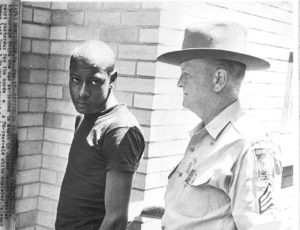Podcasts: “Inquest” and “Dirty History”
Project Directors: Cindy Hahamovitch (History), Stephen Berry (History), Scott Nelson (History)

This Andrew W. Mellon Foundation grant-funded project is part of the Global Studies of the American South research category in the Willson Center’s expanded Global Georgia Initiative.
The award-winning ACLS- and Willson Center-funded web project, CSI: Dixie, collects 26,000 coroners inquests taken in the nineteenth century South. An archive of sad endings, the site has allowed scholars in a wide range of fields — history, geography, social work, journalism, etc. — to study and respond in their own ways. Thanks to Mellon and Willson, CSI: Dixie is now launching a podcast spin-off, InQuest. Each six-episode season uses a single inquest to tell a broader story of life and death in the American South. The first season focuses on the case of Preston Cobb, a 15-year-old condemned to die in Georgia’s electric chair for the murder of a white man in 1961. Cobb’s case made it all the way to the Supreme Court, setting a legal precedent for how old you have to be to receive a death sentence. Cobb was later released when it was revealed that the white man’s son had (more likely) committed the murder. InQuest features original music, archival audio, and narrative meditations on the twists and turns of the case.
The podcast Dirty History will bring the History Department’s Dirty History seminar to a much larger audience. Organized in 2016, Dirty History is an interdisciplinary workshop for scholars working at the intersection of agriculture, environment, and capitalism. Histories of food and farming have reemerged as an important topic in recent years. The impact of anthropogenic climate change on global food supply, debates around GMOs and industrial agriculture, food deserts for minority communities in the United States, and the struggles of migrant farmworkers have all sparked new kinds of research at the intersection of history, geography, anthropology, and literary criticism. Food studies has also encouraged humanistic scholars to cross the border into scientific fields like ecology, soil science, plant biology, genomics, and engineering. To provide a space for the further development of interdisciplinary, historically-grounded scholarship around issues of agriculture, environment, and capitalism, the organizers of “Dirty History” invite both faculty and advanced graduate students to submit papers for a monthly workshop in which visiting researchers share their ideas and arguments with other scholars working in a wide range of related fields (sociology, anthropology, geography, economics, ecology, forestry, etc.). Thus far, while these interdisciplinary conversations have been open to faculty, graduate students, the occasional undergraduates, and community members from Athens and beyond, but the conversations have been held behind closed doors. The Dirty History podcast will help us share this work with a much larger audience and advertise UGA’s strengths in these fields. It will feature recorded and professionally edited interviews with select Dirty History authors about their work and its significance. The interviewer will be Scott Nelson, Georgia Athletic Professor of the Humanities, who will interview two authors each semester.
